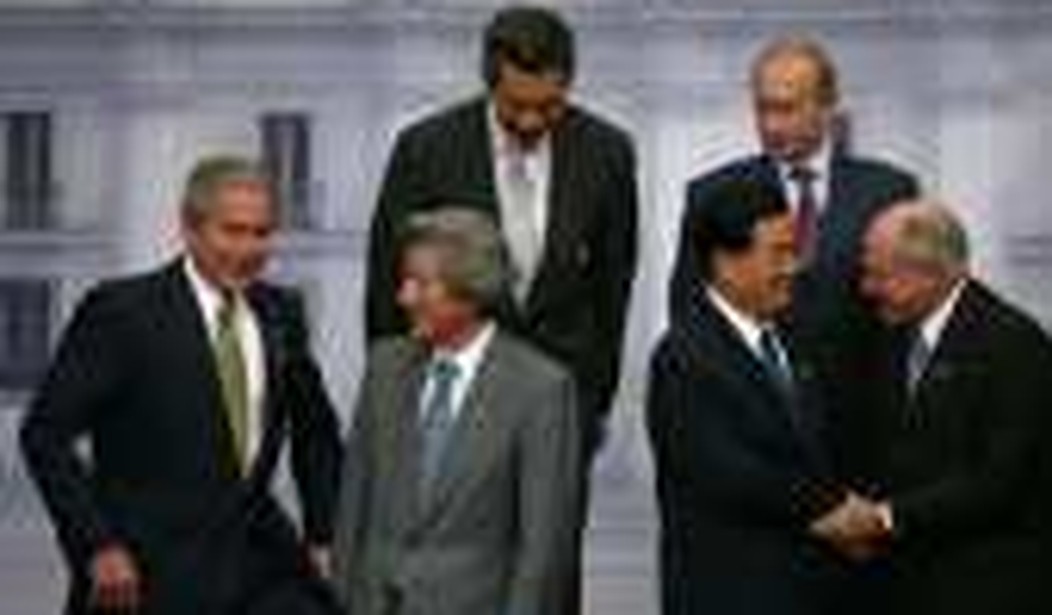The arrival in Sydney of the world’s two most powerful leaders for the APEC Summit presented a stunning contrast. President Bush said that the United States needed Australian troops to stay the course in Iraq. Premier Hu Jintao signed a deal which showed that China needed Australia’s natural gas. Lots of it. In fact, the biggest single export deal in Australian history.
The United States offered something in return for Mr. Howard, a loyal ally who faces the prospect of political defeat in Australian federal elections in a few weeks’ time. Australia has been given a treaty promising easier access to the US defense market and freeing up the exchange of military equipment and specifications. Bypassing the cumbersome layers of American defense industrial bureaucracy is a great idea. Putting that idea into practice will be much harder. It will not make the US-Australian alliance relationship, already one of the world’s closest, that much tighter.
Mr. Hu’s gift to Australia (along with the many billions of dollars in cold hard cash which will come from the gas sales) was two giant pandas. In return he received a discourse in his own language from Kevin Rudd, the Mandarin-speaking opposition leader destined to be Australia’s next Prime Minister. From the Howard government, Mr. Hu also got the promise of an annual security summit with Australia. This demonstrates that Australia still values broader cooperation with East Asia’s rising great power at a time when Beijing is concerned that an alliance of democracies is being built against it. This so-called ‘democratic quad,’ a pet project of Japan’s embattled Prime Minister Abe, also includes the United States, Australia and India, in a descending order of enthusiasm.
At the same time as the Asia-Pacific’s leaders are gathered in Sydney, American, Japanese, Indian, Australian and Singaporean armed forces are exercising together near the Bay of Bengal. This show of military might comes hot on the heals of a major exercise involving Chinese and Russian forces under the auspices of the Shanghai Cooperation Agreement (SCO). If things are not handled well, the quad and the SCO may become the foundations of two rival blocs splitting Asia into somewhat hostile camps.
For Australia this could end the dream of maintaining simultaneously warm relations with its old ally the United States and a rising China, recently anointed as Australia’s number one trading partner. Despite its need to balance China’s power, this scenario would not play well for the US either. For the region the best way forward is direct collaboration between the US and China, harnessing their ability to cooperate which has been demonstrated in the Six Party Talks on North Korea’s nuclear weapons program.
But even if extending that cooperation is possible, there will always be a good amount of competition between Washington and Beijing. And it will be played out in venues like APEC. The early money suggests that China has won this particular round. Hu’s big pockets for Australian energy supplies have beaten Bush’s passion on Iraq.
Robert Ayson is the Director of Studies at the Australian National University’s Strategic and Defence Studies Center.









Join the conversation as a VIP Member